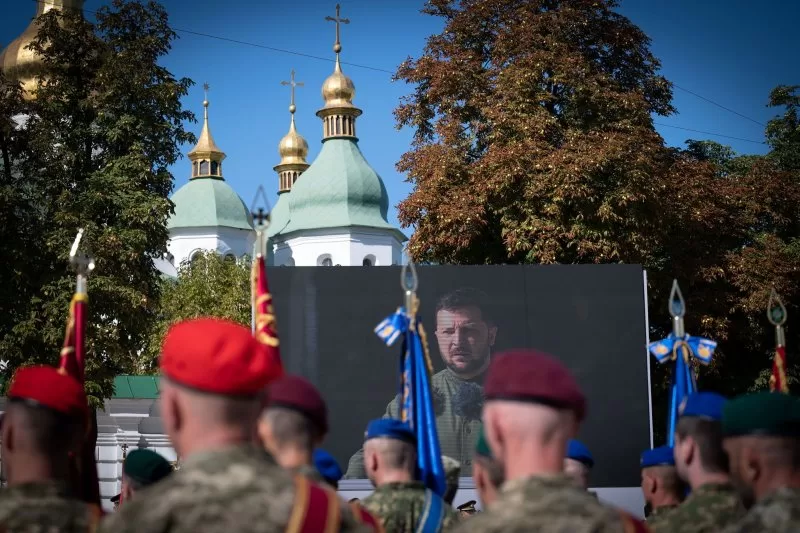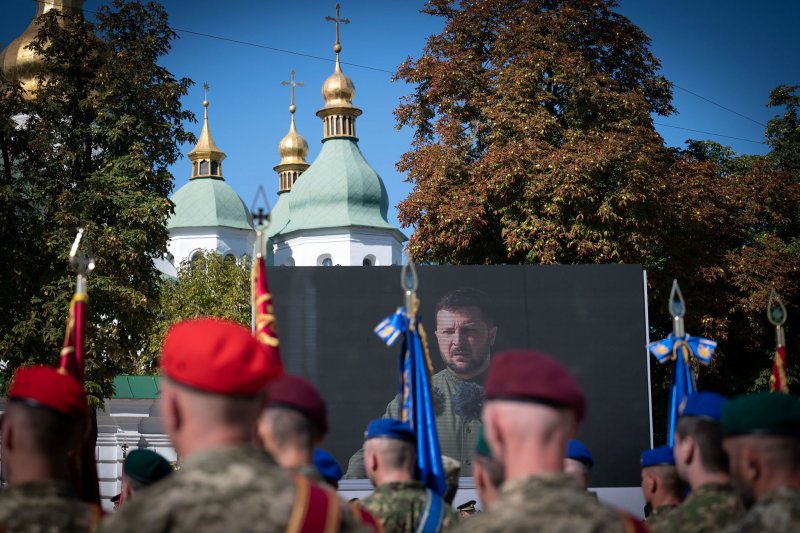Members of the Ukrainian Armed Forces look on as Ukrainian President Volodymyr Zelensky speaks during an official celebration of Ukraine’s 32nd Independence Day in Sophia Square in Kyiv, Ukraine on August 24, 2023. File Photo by Ukrainian President Press Office/ UPI |
License PhotoMarch 10 (UPI) — A Moscow court has sentenced a student to 10 days in jail for naming his Wi-Fi network with a pro-Ukrainian title.
The Moscow State University student named the Wi-Fi network “Slava Ukraini” which means “Glory to Ukraine,” according to the database of the Nikulinsky District Court. The phrase has become the rallying cry of Ukraine’s forces.
The court called the act a “public demonstration of Nazi symbolics or symbols of extremist organizations,” according to the BBC.
Since the beginning of the offensive in 2022, Russian officials have cracked down on people expressing support for Ukrainian forces. Thousands of people have been imprisoned or fined for actions thought to support Ukraine.
The student was arrested Wednesday morning in his Moscow dorm room, after a police officer reported the network name to authorities.
Officers inspected his room and found his personal computer and a Wi-Fi router, according to court documents.
The court reported the student had used the network to “promote the slogan ‘Slava Ukraini!’ to an unlimited number of users within Wi-Fi range.” The router has now been confiscated.
Russian President Vladimir Putin has made repeated claims of a “neo-Nazi regime” in Ukraine, and has used them to justify his invasion.
The student is the latest in a series of Russians who have been punished for their comments — or actions — about the war. Hundreds of people were detained last month for laying flowers in memory of opposition leader Alexei Navalny, who died under suspicious circumstances in an Arctic Circle prison.
The conflict is required to be referred to as a “special military operation” in Russian and not a “war.”
About 21,000 people have been targeted by Russia’s “repressive laws” used to “crack down on anti-war activists,” according to the human rights group Amnesty International, which added that Russian courts have performed “deeply unfair trials” which were used to “dish out prison sentences and hefty fines to silence critics in response to the slightest dissent.”

